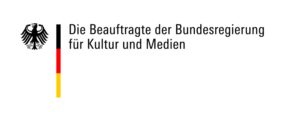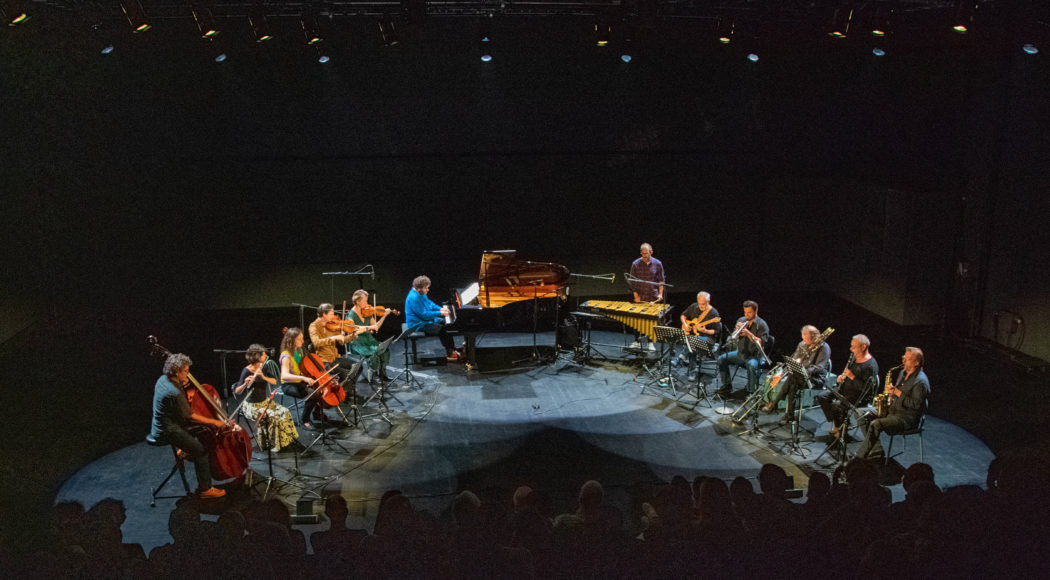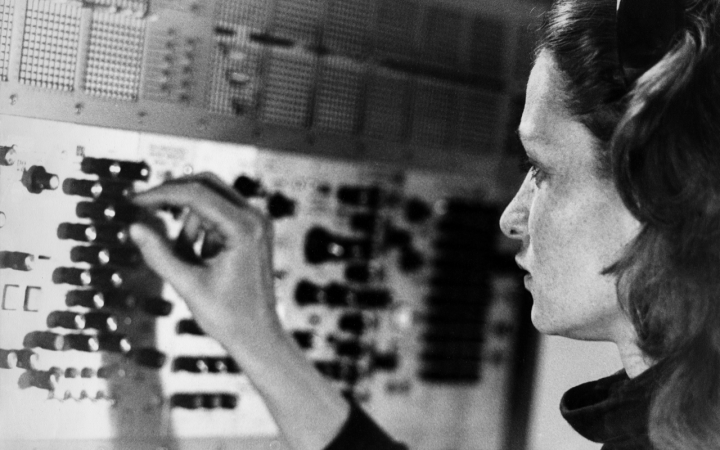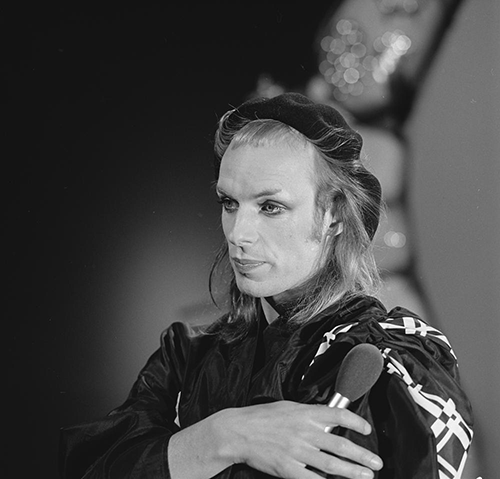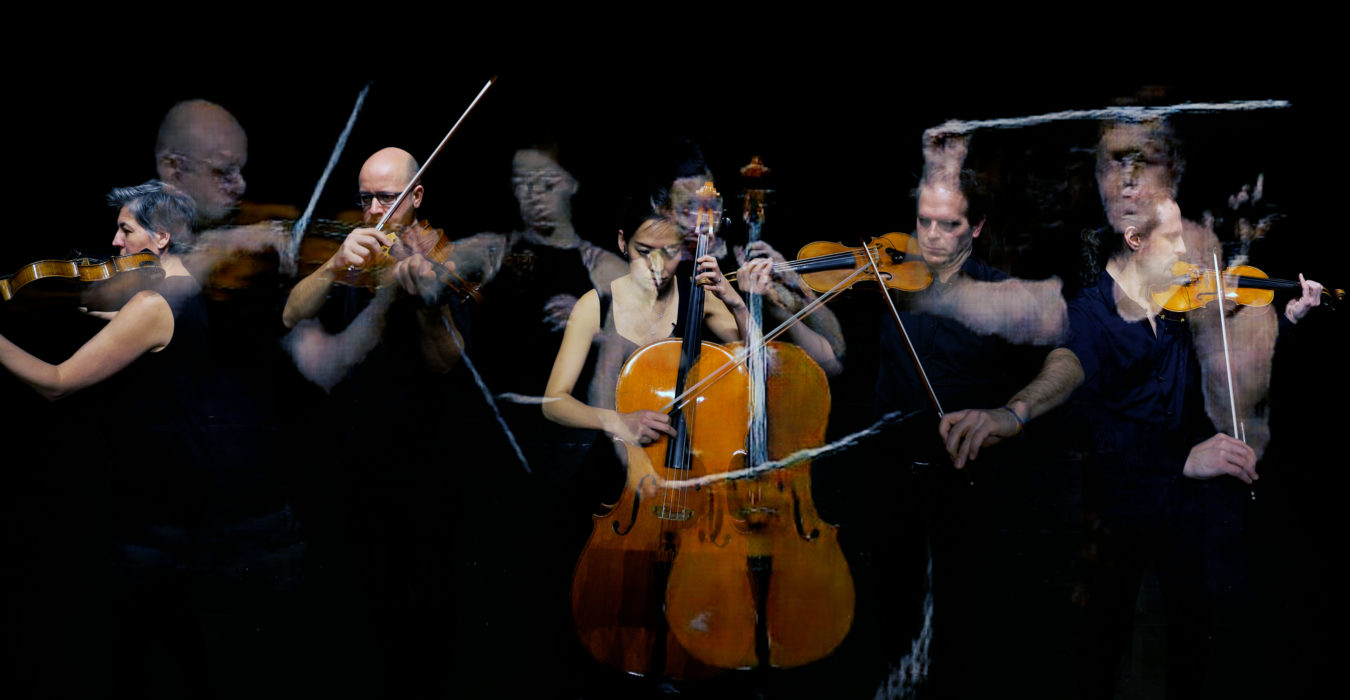Happy New Ear
Dedalus Ensemble plays Éliane Radigue and Brian Eno
For the musical start of the year Happy New Ear in HELLERAU, Ensemble Dedalus presents Brian Eno and Eliane Radigue, two of the most important pioneers of electronic music, in a rarely heard instrumentation for chamber orchestra.
Organized as a collective, Dedalus Ensemble was founded in 1996 by Didier Aschour and is one of the most internationally sought-after ensembles for contemporary and minimalist music, based in Toulouse. The ensemble and its projects are closely associated with GMEA – Centre National de Création Musicale d’Albi-Tarn.
Éliane Radigue’s music is a hypnotic experience of space and time, simultaneously monumental and infinitely discreet. Since her first compositions in the late 1960s, the composer has developed a unique style; as a pioneer of electronic music, she worked exclusively with this medium until 2000, when she began to experiment with acoustic sounds and instruments. Brian Eno began his career in 1971 as a co-founder of Roxy Music, worked as a musician and producer with David Bowie, Robert Fripp, Talking Heads, Laurie Anderson, Peter Gabriel or Paul Simon, among others. With his release Ambient 1: Music for Airports (1978), he christened the music style Ambient and has shaped it until today. In 2023 he received the Golden Lion of the Venice Biennale for his life’s work.
Duration: ca. 1 h 20 min
Program:
Eliane Radigue: Occam – Hepta I, 2018 (ca. 30 min)
More Infos
Brian Eno: Music for Airports, 1978 (ca. 40 min)
More Infos
Eliane Radigue, now considered one of the most influential composers of her generation, met musique concrète pioneer Pierre Schaeffer in the 1950s and began studying electroacoustic composition with him and his partner Pierre Henry at the Studio d’Essai of the French radio RTF. Her early works are often attributed to a “feedback phase,” such as “Étude” (1970), in which Radigue makes a piece by Chopin slowly disappear into spatial frequencies and feedback loops. Later projects are inseparable from the unique beats of her ARP 2500 synthesizer; this period is also marked by the development of long forms and subtle variations. The ’90s are also a time of mourning for Radigue; by the end of the decade she was working on the three-hour “Trilogie de la Mort” in memory of her son Yves Armand (1954-1989). In another period, which continues to this day, she develops mainly acoustic works, in close collaboration with like-minded musicians such as the Dedalus Ensemble.
Brian Eno is a musician, producer, visual artist and activist who rose to international prominence in the early seventies as a founding member of the British band Roxy Music, followed by a series of solo albums and collaborations. His work as a producer includes albums with Talking Heads, Devo, U2, Laurie Anderson, James, Jane Siberry and Coldplay, while his long list of collaborations includes recordings with David Bowie, Jon Hassell, Harold Budd, John Cale, David Byrne, Grace Jones, Karl Hyde, James Blake and most recently with his brother Roger for the album Mixing Colours. In addition to his visual experiments with light and video, he has released over forty albums of his music to date and has held numerous exhibitions, including at Ritan Park in Beijing, the Arcos de Lapa in Rio de Janeiro, and on the sails of the Sydney Opera House. He is a founding member of the Long Now Foundation, a trustee of Client Earth, and a patron of Videre est Credere. In April 2021, he launched EarthPercent, which raises money from the music industry for some of the most impactful environmental organizations working to protect the climate.
Founded in 1996 by Didier Aschour, Dedalus is an internationally touring contemporary music ensemble based in Toulouse and associated with the GMEA – Centre National de Création Musicale d’Albi-Tarn. Specializing in freely orchestrated scores of experimental contemporary music, Dedalus organizes itself as a collective in which arrangements, orchestrations and interpretations are developed together. The repertoire includes works by classics of minimalism such as Phill Niblock, Frederic Rzewski, Tom Johnson, Moondog, and Philip Glass, or the Wandelweiser movement such as Michael Pisaro, and Antoine Beuger. The focus is also on composers such as Eliane Radigue, Peter Ablinger, Jo Kondo, Luc Ferrari, and commissions to a new generation such as Catherine Lamb, Jean-Luc Guionnet, and Sébastien Roux. Dedalus’ recordings have been released on the New World Record (US), Potlatch (FR), Brocoli (FR), Relative Pitch Records (US), Sub Rosa (BE) and Montagne Noire (FR) labels.
GMEA – Centre National de Création Musicale d’Albi-Tarn was founded in 1981 and belongs, together with six other centers, to the network of CNCM – Centre national de création musicale, through which the French Ministry of Culture supports institutions committed to the renewal of musical forms and languages through experimental and innovative musical projects. GMEA develops its activities through commissions, hosting musicians in residencies, producing new works and research projects. An important goal is the dissemination, mediation and transmission of the works in order to make them accessible to a wide audience.
Didier Aschour : Guitar and artistic direction
Amélie Berson : Flute
Cyprien Busolini : Viola
Eric Chalan : Double bass
Denis Chouillet : Piano
Stéphane Garin : Vibraphone
Alexandra Grimal : Saxophone
Thierry Madiot : Trombone
Pierre-Stéphane Meugé : Saxophone
Silvia Tarozzi : Violin
Fabrice Villard : Clarinet
Deborah Walker : Cello
A project from Ensemble Dedalus and GMEA (Centre national de création musicale d’Albi-Tarn)
www.dedalus-ensemble.fr www.gmea.net
Funded by the Federal Government Commissioner for Culture and the Media as part of the Alliance of International Production Houses.

